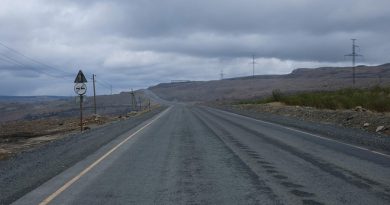New premier of Canada’s Northwest Territories will face big demands for change
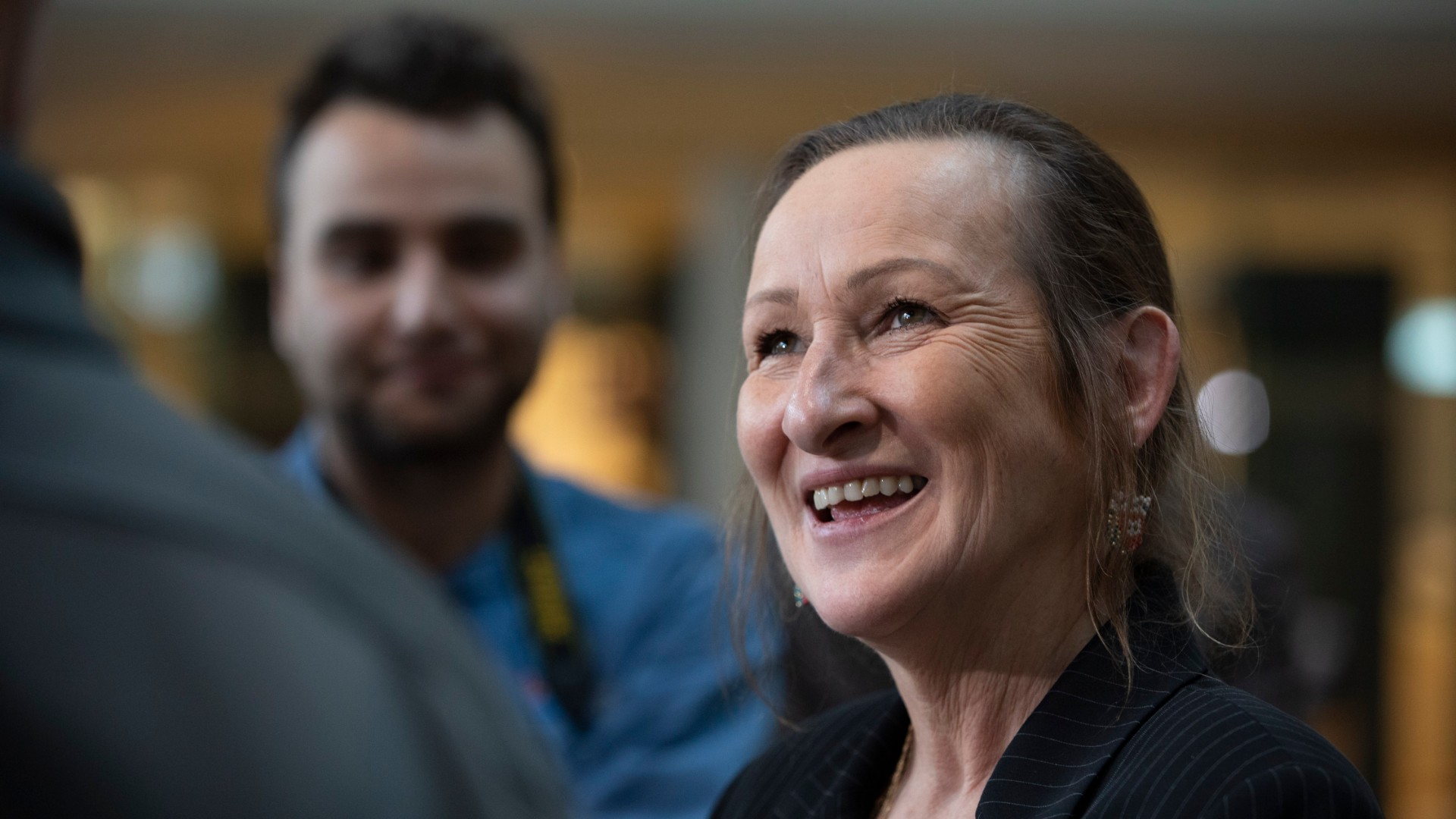
At the outset of Thursday’s vote, onlookers could be forgiven for assuming Jackson Lafferty had the advantage in the race for N.W.T. premier.
Lafferty was the legislature’s longest-serving member, acclaimed in his district. He spent weeks campaigning, calling candidates and lining up endorsements well before election day.
In earlier rounds of voting, Lafferty successfully survived challenges from R.J. Simpson and Frieda Martselos — candidates who campaigned on changes to the status quo.
And all had benefited from a campaign that gave voice to frustration over the flow of benefits to the capital under a Yellowknife premier.
More than a few MLAs said they wouldn’t stand for another premier from the city after eight years under Yellowknife South’s Bob McLeod.
And yet, at the end of three rounds of voting, Caroline Cochrane, MLA for Range Lake in Yellowknife, was the one who emerged victorious on Thursday when MLAs selected their next leader.
N.W.T. unique in Canada
For the 19 MLAs of the legislature, Cochrane’s win can be viewed as a symbolic victory.
After an election that saw the N.W.T. Legislature become the most gender-representative assembly in Canada, Cochrane became the country’s only current female premier.
And though N.W.T. MLAs do not have a party affiliation in its consensus government, in a federation divided by this week’s federal election, Cochrane is also representative of a different approach.
A Métis woman with a strong progressive agenda, she is a contrast to Conservative premiers elected across the country — a possible advantage for a territory dependent on federal investment for new initiatives.
Some MLAs may be hoping Cochrane’s win has more practical consequences, as well.
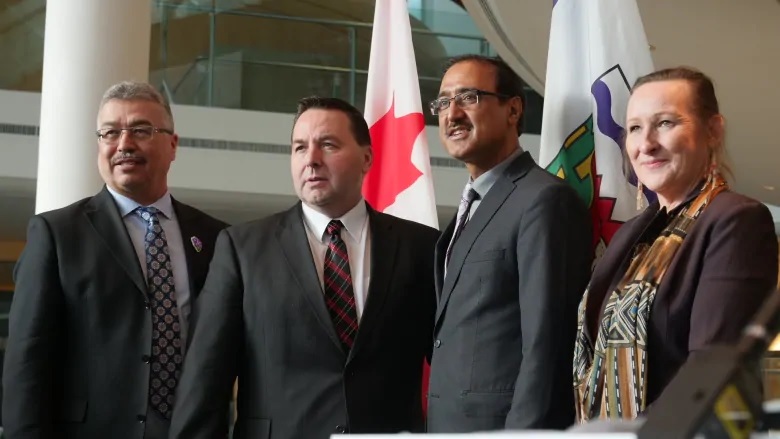
In an improvised speech after the result was announced, Cochrane pledged to advance a change agenda that many MLAs endorsed in the aftermath of the territorial election on Oct. 1, which brought in 12 new members.
“I’ve heard it, and we need to work better together,” she said.
She pledged to keep an “open door” and resist the acrimony that defined the last assembly, where cabinet voted in solidarity to pass legislation in the face of strong opposition from many regular MLAs.
Complicated legacy as cabinet minister
But in other ways, Cochrane’s election represents an endorsement of the status quo.
It can’t be forgotten, Cochrane was a member of that combative cabinet — the only minister to survive the election.
As minister of housing and, later, education, culture, and employment, she oversaw two departments that critics say saw worsening outcomes.
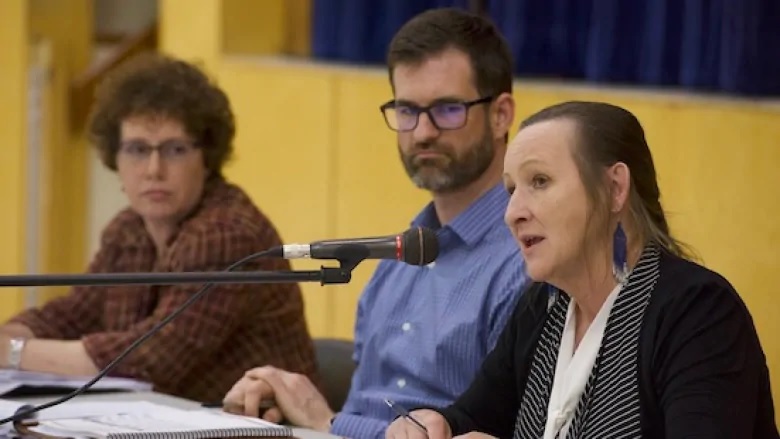
Cochrane can defend her record by pointing to her brief time in the roles — two years with each portfolio, in a government that tends to plan and work in decades.
Indeed, at the time she was shuffled out of the housing portfolio in 2017, she earned praise from fellow legislators for her ability to disrupt the status quo.
“What [Cochrane] was able to do at the N.W.T. Housing Corporation is to take a really entrenched department and lead them into a new way of doing things,” said Yellowknife Centre MLA Julie Green at the time.
But that new way of doing things did not result in marked improvement. In recent months, local leaders have decried an ever-worsening relationship with the N.W.T. Housing Corporation, and changes to government programs that have left them worse off.
In education, too, Cochrane cannot claim she left the department in a good place. She condemned it herself just before the election.
“We’re failing our children,” she said. “It’s not OK.”
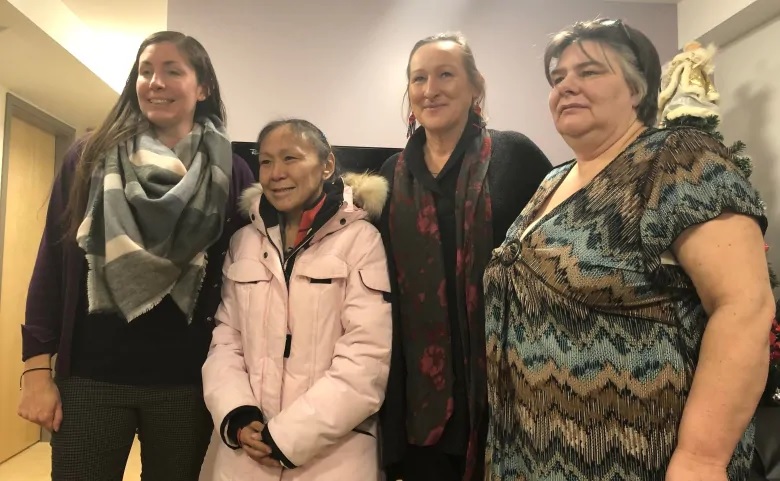
More than half of the territory’s Grade 9 students fall short of an “acceptable standard” in math and English, and students miss on average a day of class a week.
Those stats reveal wide disparities between Yellowknife and smaller communities, where attendance and graduation rates are abysmally low.
Cochrane said in her pitch to MLAs last week that she would “consider the needs of all people and all communities.”
But that wasn’t always the case as education minister. In 2018, she celebrated the findings of the Aurora College Foundational Review, which derided the “educational experience” of Fort Smith and advocated relocating the college to Yellowknife.
Consult more and produce reports
As a solution to the territory’s woes, Cochrane has consistently offered two approaches.
The first is to “start engaging with Aboriginal governments,” in her words — transfer powers and responsibility for areas like education, rehabilitation and environmental stewardship, and increase consultation across the board.
Those governments have often expressed a desire for the same, not least in frank conversations with MLAs last week.
But many are also mired in self-government negotiations for control of those services, which they accuse the territory of jealously guarding.
Addressing that critique in response to a question on Thursday, Cochrane said the government needed to hold “more meetings” with Indigenous leadership, and “work together in advocating [to] Canada.”
Cochrane’s other solution is planning.
Under her tenure as minister of housing and education, the departments produced a small mountain of “strategic frameworks,” “action plans,” “engagement surveys,” and policy “visions.”
In her pitch to MLAs, she doubled down on this approach, vowing to mandate “equity-based and gender-based analysis” for all new programs, and promised to review territorial climate change priorities outlined in reports released just last year.
It remains to be seen whether, in her new role as premier, she can give those planning documents the force of her ambition.
Related stories from around the North:
Canada: Canadian FedElxn 2019: Liberals hang on to western Arctic, centre-left NDP takes east, Eye on the Arctic
Finland: Sámi Parliament of Finland torn on local rights, urban influence, Yle News
Norway: Political earthquake shakes up Northern Norway, The Independent Barents Observer
Russia: How Murmansk government plans to attract newcomers and reverse regional decline, The Independent Barents Observer
Sweden: Swedish gov’s budget raises fears over inequality, Radio Sweden
United States: Protest, policy critiques mark first day of Alaska Federation of Natives Convention, Alaska Public Media

